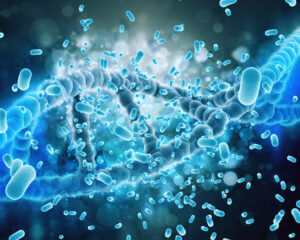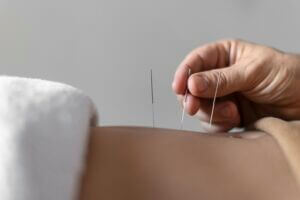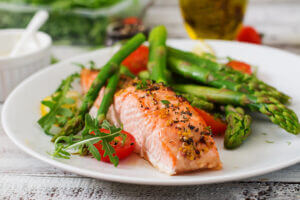Author: Andrea Burton
With summer in full swing, preparing for the pesky toils of a high pollen count is essential. Alleviating hay fever symptoms allows you to enjoy summer without streaming eyes or a runny nose. This year, soak up some sun by tackling your pollen allergy naturally.
5 ways to keep hay fever symptoms at bay
1. Balance bacteria

Approximately 70% of the immune system is located within the gut. The cells lining the digestive tract are vital in absorbing nutrients efficiently while blocking out viruses, pathogens, and allergens. Consuming fermented foods, such as sauerkraut, kimchi or kefir or taking a multi-strain live bacteria supplement, such as Bio-Kult Advanced, helps keep the lining of the digestive tract intact and support the immune system. A review and meta-analysis looking at the role of live bacteria supplements in the treatment of hay fever concluded that those taking live bacteria supplements significantly reduced their hay fever symptoms.
2. Do your part for pollution

Hay fever is an overreactive immune response to usually harmless substances such as pollen and grass, triggering the release of IgE antibodies and the inflammatory substance histamine. As if hay fever symptoms weren’t uncomfortable enough, researchers now believe that when pollen interacts with high levels of air pollution, such as those seen across most major cities, its allergic effect may be heightened. This means lower pollen levels in the air can cause hay fever and other problems such as asthma. Some experts now believe pollution level forecasts may be as crucial as pollen counts for hay fever sufferers as we advance. So, make the most of the nice weather and walk or cycle over the weekend. It might just make that difference.
3. Try a course in acupuncture

Increasing evidence supports acupuncture’s ability to help modulate the immune system,11 with potential benefits in allergic conditions. A 2015 meta-analysis suggests that acupuncture could be a safe and valid way to manage hay fever symptoms12. Analyzing the results of 13 studies, it was found that compared with control groups, the acupuncture treatment group showed a significant reduction in nasal symptoms, medication scores and IgE antibody levels, as well as a significant improvement in quality of life.
4. Stay hydrated

Histamine release is increased when we are dehydrated. Drinking plenty of filtered water throughout the day and reducing alcohol, tea, and coffee could help reduce pollen allergy symptoms.
5. Anti-Inflammatory foods

As hay fever relates to immune dysregulation, it is thought a variety of dietary and lifestyle interventions to support the immune system may be of benefit. Nutrition is a critical determinant of immune responses. As hay fever is an inflammatory condition, following an anti-inflammatory diet high in antioxidants and phytonutrients from colorful fruit and vegetables and omega-3 fatty acids from oily fish (such as salmon, mackerel and sardines), hemp, and flax is advisable. Certain foods high in flavonol quercetin may be particularly beneficial due to its anti-allergic activity.14 The primary food sources of quercetin are vegetables such as onions, garlic and broccoli. Fruits such as apples, berries and grapes, herbs, and tea.14 Quercetin appears to work synergistically with vitamin C,15, so eating in combination with vitamin C-rich foods is recommended.






